Moving into a van set me free in so many ways. I peeled back the layers of who I was and found someone more resilient, more authentic, more open. However, anxiety I didn’t know I had bubbled to the surface in an unhealthy way. This is the story of mental health and vanlife, and the complicated relationship I have with both.
What does anxiety feel like to you?
- Does it feel like sinking?
- Does it feel like a heavy weight on your chest, threatening to force the air from your lungs?
- Do you break out into a cold sweat?
To me, anxiety feels like pins and needles pricking the back of my neck, back, and shoulders. My heart races, I feel a tightening in my chest, and all the muscles in my body clench and unclench.
In a fight-or-flight scenario, this is my flight response.
This is how I respond physically to anxiety. And this is how I found myself one night, sweating under the covers in Yosemite National Park.
To be clear, it is illegal to sleep in your van in any parking lot in Yosemite National Park. I knew this, my partner knew this. We did it anyway.
The legal implications of what I was doing weighed heavily on me as I lay on my back with my eyes shut, desperately trying to breathe through waves of panic that surged through me every 30 seconds. When I slept, my dreams were full of improbable scenarios: cops pulling on door handles that broke off in their hands, opening doors that were rusty and broken, shining flashlights from three dozen park rangers and the red and blue flashing lights of cop cars that would eventually whisk me off to jail.
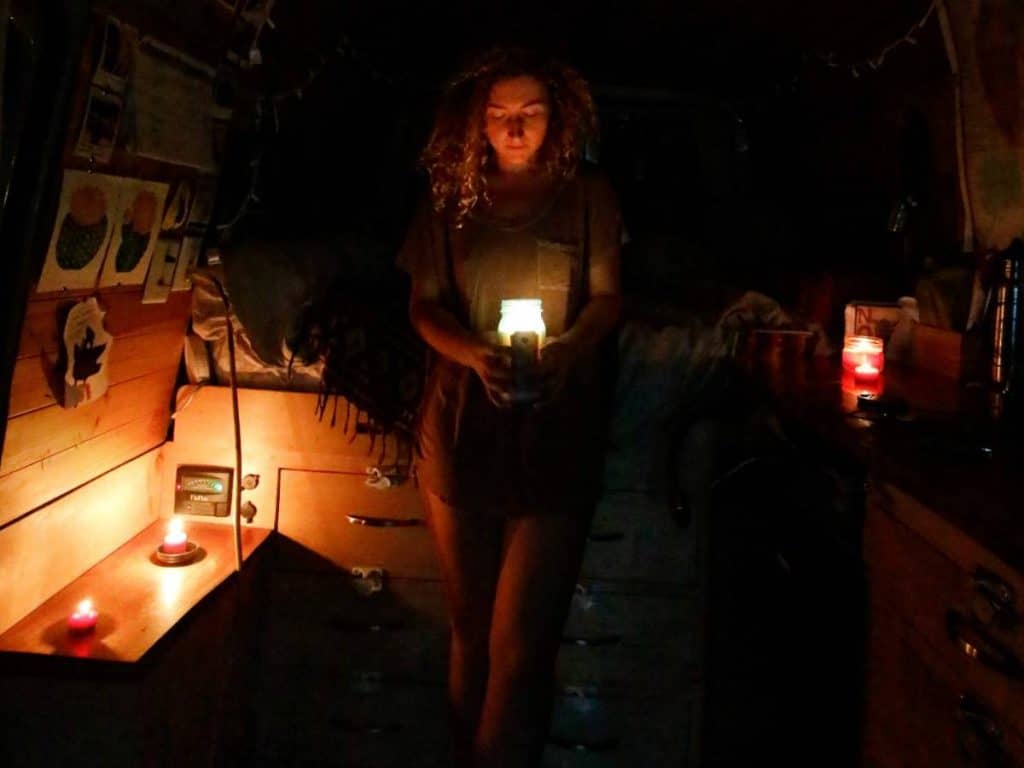
The night wore on, and I woke up again. The feeling of my skin against the bedsheets began to chafe. The weight of my body on the foam mattress felt too heavy. Above me, the stars made their slow journey across the sky.
It wasn’t always like this.
I opened my eyes after another imperceptible measure of time. The faint red glow of a headlamp charging cast the van in an eerie gloom.
I remembered my first year sleeping in my little home on wheels. The dark, cozy interior with blackout curtains and heavy metal doors made me invisible from the world outside. I could cease to exist as soon as I latched the door.
I rolled over to one side and pulled the light sheet with me as I went, curling it under my chin in my hand.
I stared, unseeing, into the blackness, and thought about the first time someone called the cops on me.
Almost a year ago, I was stealth camping in a wealthy neighborhood waiting for a friend to come back from a date. I parked on the street, walked around to look at the stars for a moment, and then went inside to watch a movie.
Halfway through falling asleep, someone started banging on my door. They didn’t identify themselves, and I didn’t answer. My doors were locked and I felt someone try every handle. They jumped on the car, shaking it back and forth. I hid alone under my covers, terrified, and hoped they would go away. The banging continued, and I could see the white light of a flashlight desperately streaming through the cracks in my window covers, searching for any sign of me.
This was the first time I felt afraid in my van.
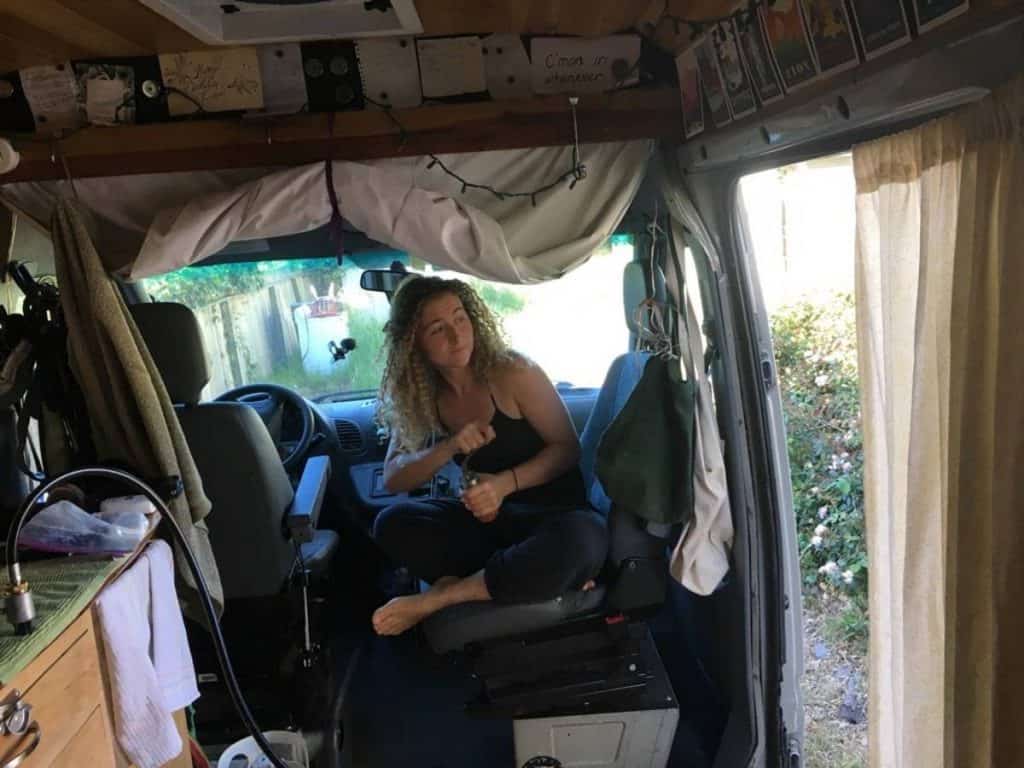
To make a long story short, they went away, and I moved my van to my friend’s driveway. I hoped by being there I wouldn’t be hassled anymore. I was wrong. The cops returned and found me in bed. I spent the next 45 minutes sitting on the cold concrete while they shone bright lights in my face and asked me a long list of repetitive questions. Eventually they let me go and told me to “leave and never come back.”
This was the first time (but definitely not the last) I got kicked out of the place I was trying to sleep.
The experience made me wary of parking on streets. Later that fall I drove around Bishop, California for two hours trying to find a place to park. Terrified that if I parked on the street someone would report me and I’d be kicked out again.
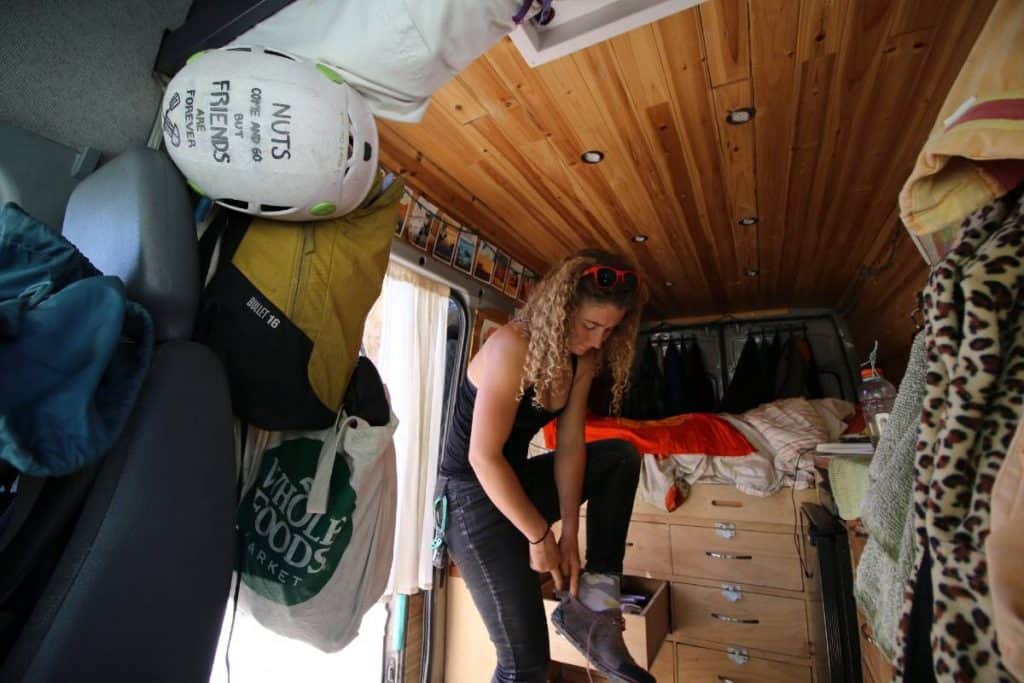
I started to gauge parking spaces by how remote they were. The more remote, the less likely they were to be patrolled by police or park rangers. The downside to remote spaces was that any sound of approaching vehicles had me convinced that a murderer was driving down to find me.
I am constantly reminded of all the ways solo female travelers can be harmed.
From the new serial killer podcast fad, to Law and Order SVU reruns, to every one of my relatives reminding me to “be safe”, to the faded black and white posters of missing women on message boards of travel stops.
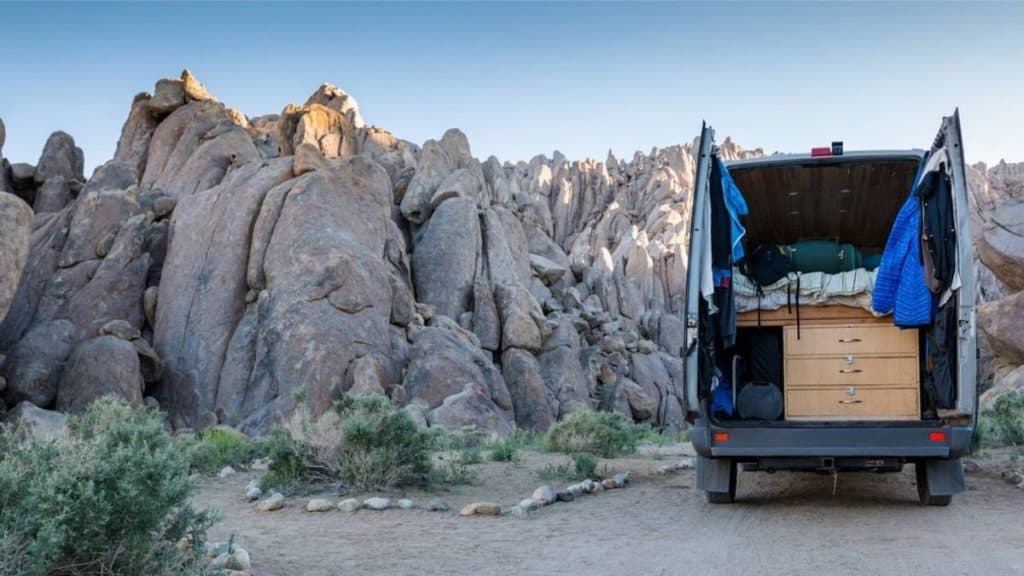
I lie in bed and think about how my hypothetical murderer would come for me. I imagine waking up to the sound of breaking glass, as an axe murderer throws himself at the only vulnerable point of entry to my van: my windows.
Would I be able to make it to the driver’s seat in time? What if while I was asleep he slashed my tires? Would I be able to call 911? Could I defend myself? What if…?
Finding a place to park for the night began to hold new anxiety for me. Too close to town? Cops. Too far away from town? Axe murderer.
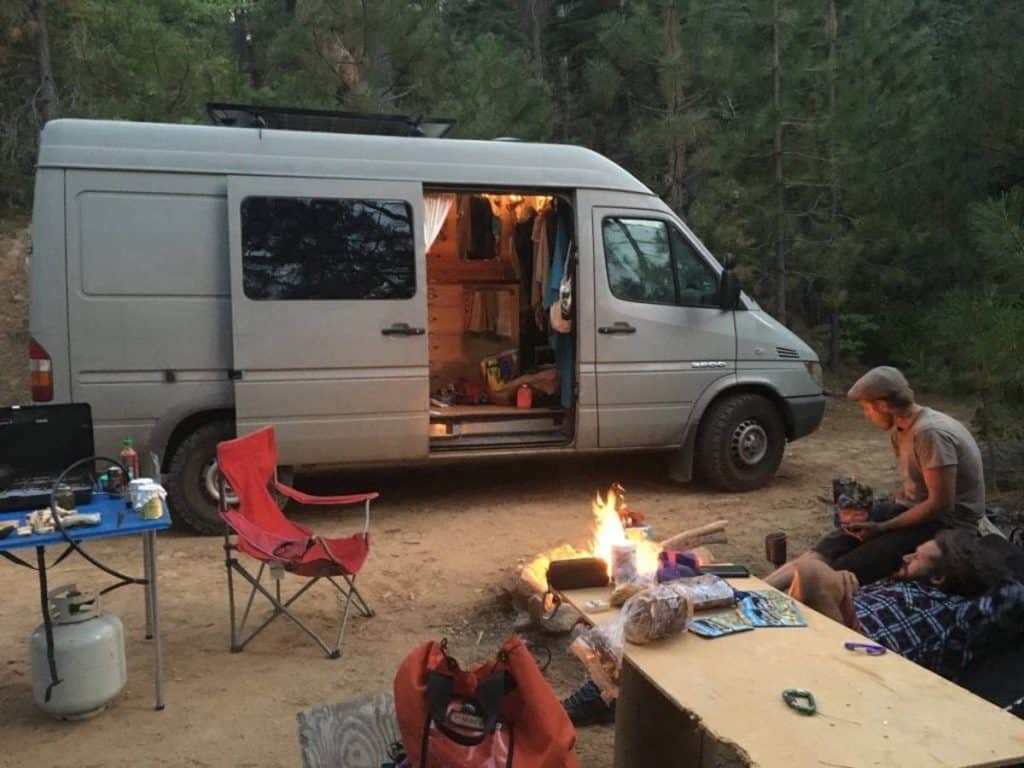
The feeling of being unwanted and unwelcome began to seep into my subconscious.
I watched people move their cars so I couldn’t park in front of their house while visiting my mom, so I made an effort to only park in her driveway. A good friend of mine was pulled from his vehicle and handcuffed by a park ranger, so I avoided that particular parking lot. I began to collect notes that people left on my dash in the mornings, requesting that I not park there. I was asked to leave a trail head by a kind-faced park employee again. And again. And again.
And again.
I am not welcome. I am not wanted.
I began to park as tightly as I could to the curb. I locked my van every time it was out of eyesight. I was always on the move. Always alert.
This began to feel normal. I lived with a low electric buzz under the surface of my skin.
I am not welcome. I am not wanted.
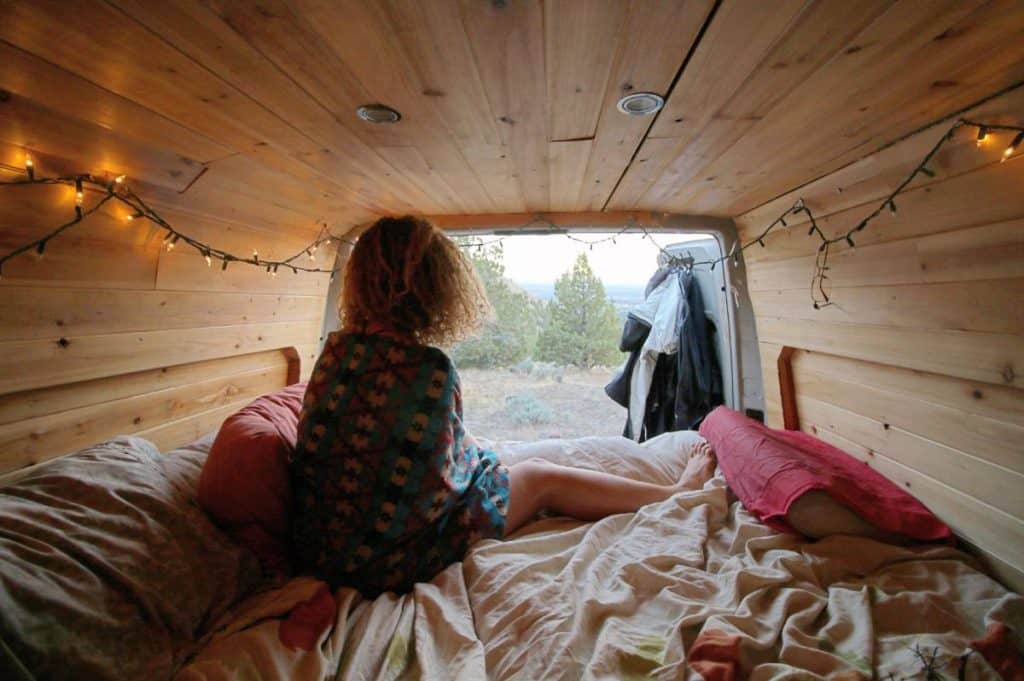
I would not accept help from my friends and family, because I did not want to be a burden. I knew how much people hated to have my van on their street, I didn’t want to create trouble with the neighbors.
No, no, I wont stay here, I’ll leave town, I don’t want to bother you. I should move my van anyway, it’s in your way.
I lived with my doors closed, moving in and out as quickly as I could, so no one could see my vulnerable nuisance of a house on their street, in the grocery store parking lot, or at the remote gas station.
This constant state of vigilance was exhausting, but I refused to acknowledge it.
I began to have seemingly unprovoked panic attacks. If I couldn’t find a place that met my highly complicated criteria for a “safe” place to park, I wouldn’t sleep. I would lie awake, and feel as if my whole world was rattling apart. My skin on fire with pins and needles. The unseen eyes of police, murderers, and grumpy homeowners probing my van’s every weakness.
Any second now I would be awoken to the sound of a heavy metal flashlight banging on my door, or the smashing of an axe handle through my window, or the soft rapping of a man in a bathrobe telling me to leave at 2 am and do the whole dance of finding a safe place to park again.
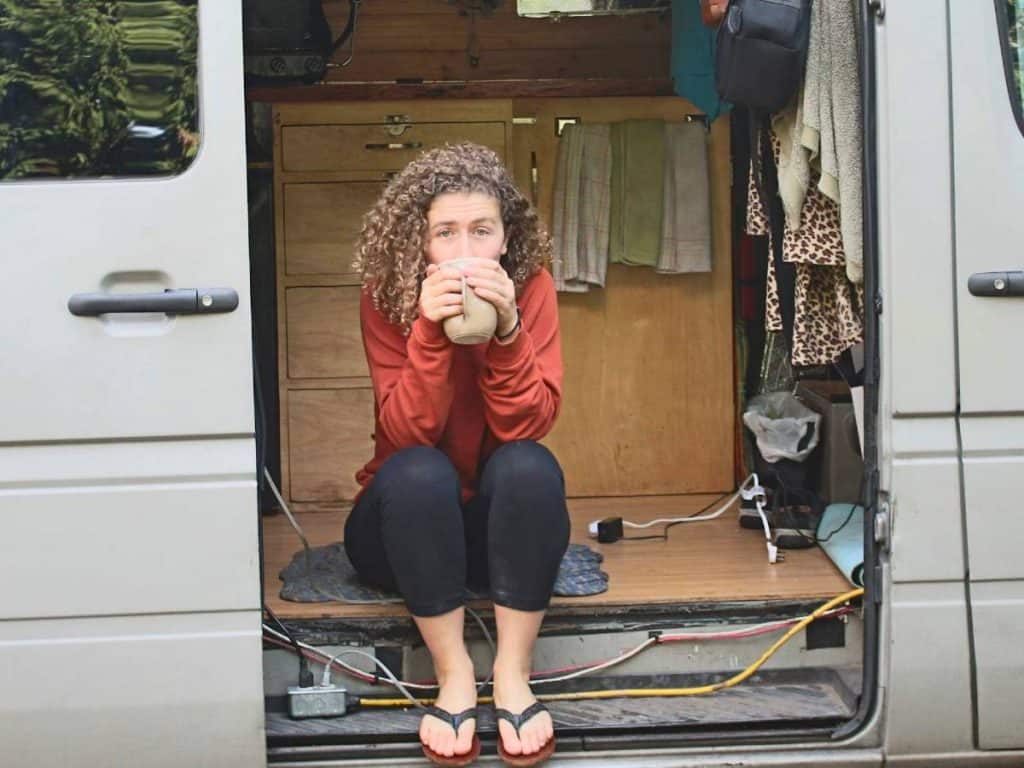
The week I took my Wilderness First Responder course in Truckee, California, I spent the first night in the church parking lot where the course was to be held. I didn’t sleep that night. My anxiety over being in a wealthy neighborhood next to a fire station had convinced me that the neighborhood watch was going to come down on me hard.
The next sleep-deprived day during the course, the instructor made a public announcement that we should “please not sleep in our vans in the parking lot.” He didn’t look at me, but I felt the familiar tightness in my chest.
I am not welcome. I am not wanted.
In my desperation to find a place to stay that night, I texted a family friend who I knew lived in the area. I was overly apologetic, and felt like a terrible imposition.
I’m so so sorry to ask, I know this is a disruption to your life, I don’t want to be a burden…
They welcomed me with open arms.
I was given a bed in a room with my own bathroom. There was a fluffy grey cat that came to visit me in the mornings. I showered each day before class. I slept better than I had in years.
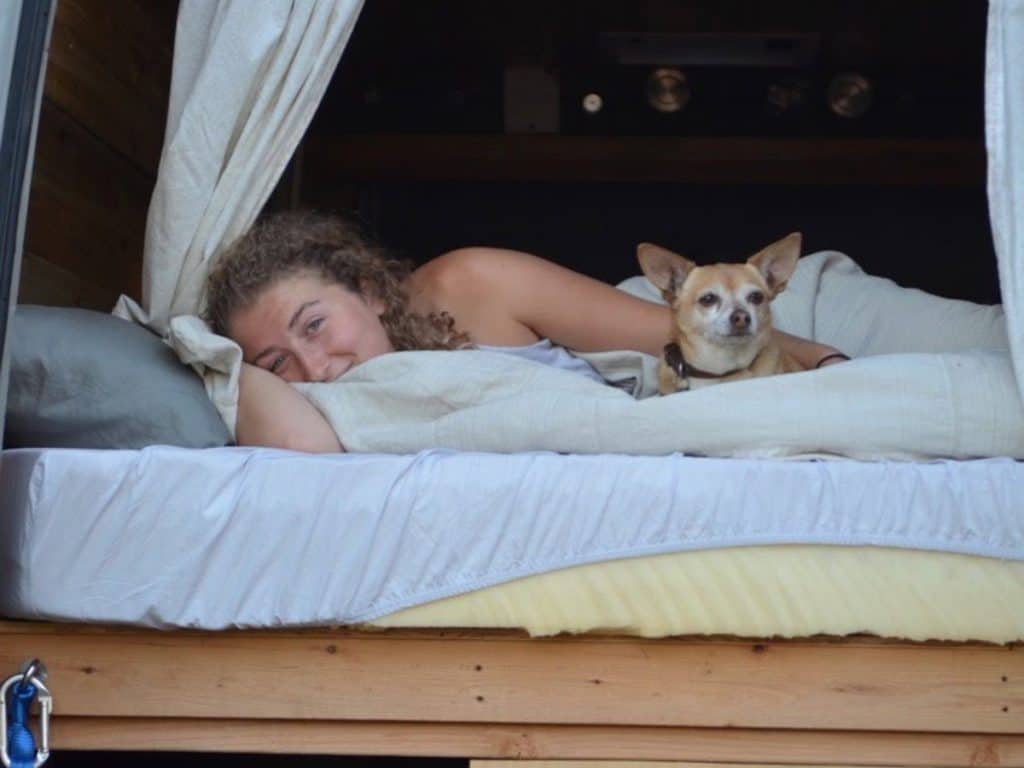
A weight I did not know I was carrying was lifted off my chest. I felt like I could breathe again.
There is a lot to say about vanlife. There are so many ways moving in to a van was beneficial to me. But like anything, there are many facets to it, and many mistakes you can make. As vanlifers, we spend a lot of time promoting how great the lifestyle is. But there are more insidious ways vanlife can affect you.
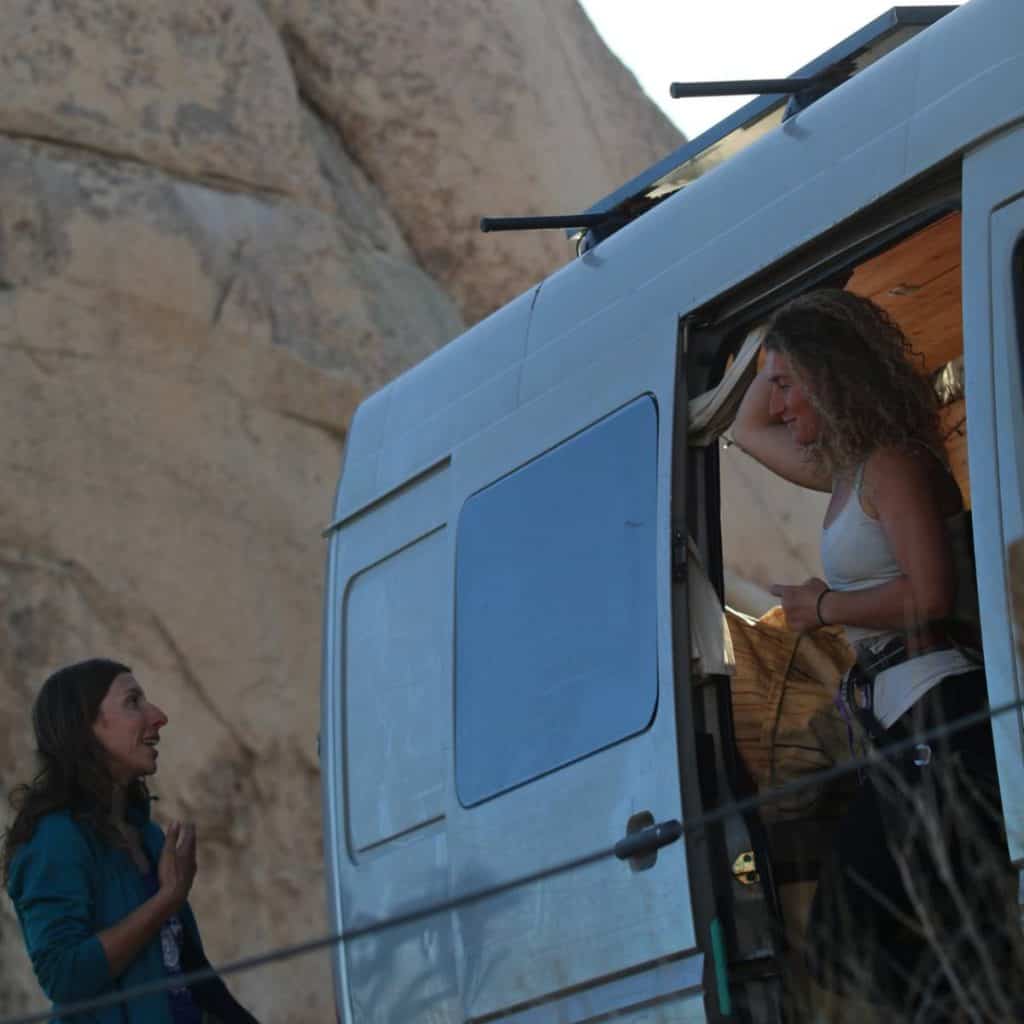
I was putting too much emphasis on the need to keep moving all the time, when what I really needed was a place to stop and truly rest.
The weight lifted. I began to spend more time in one place. I began to long for a consistent location to sleep at night. I recently moved into a house. There were lots of reasons for it, but one of them was because my anxiety had gotten so bad.
I don’t think vanlife is bad for your mental health. But I do think consistent personal safety is important for your well being. Constantly being on the move, never having a solid community or location to rely on, can be damaging. I’m not done with vanlife, I probably will never be done with long road trips and sleeping in my car.
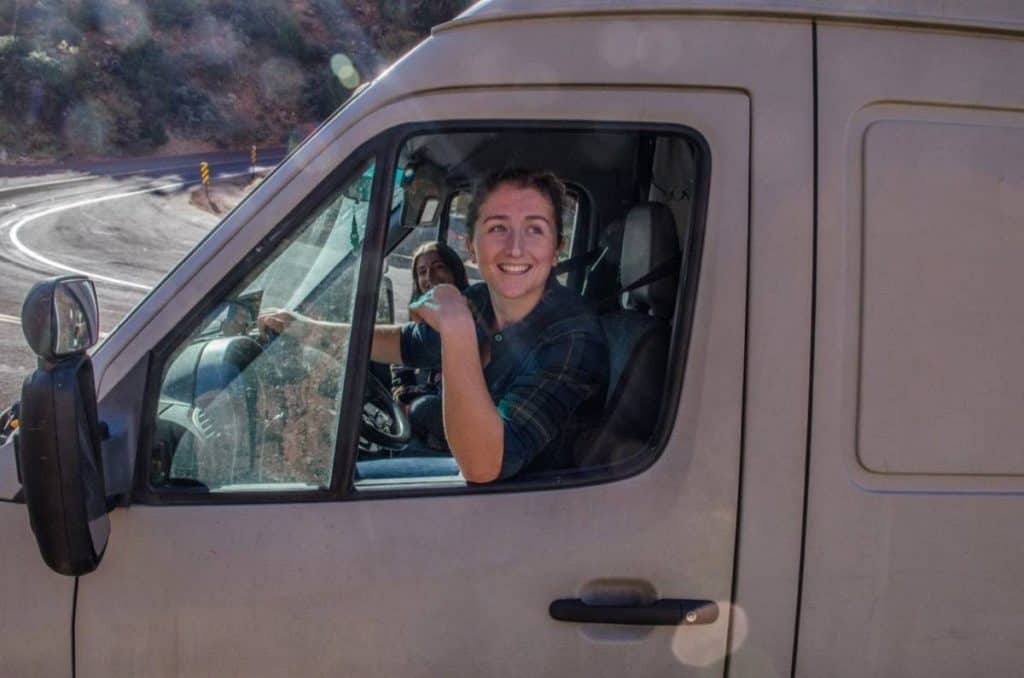
But I am done with the need to be on the move all the time.
I am done with this anxiety.
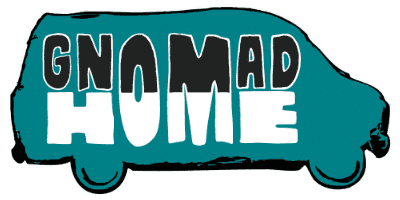
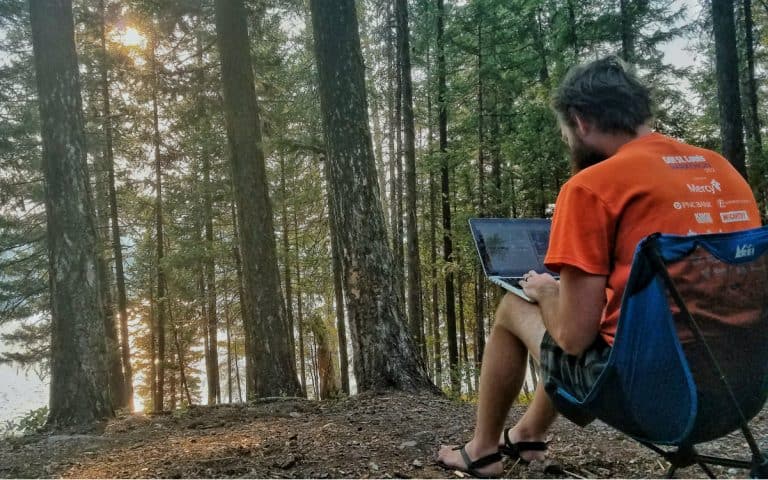
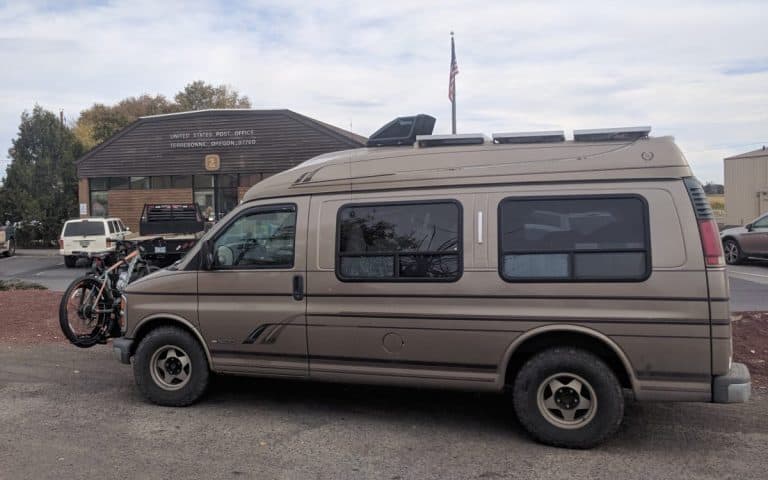
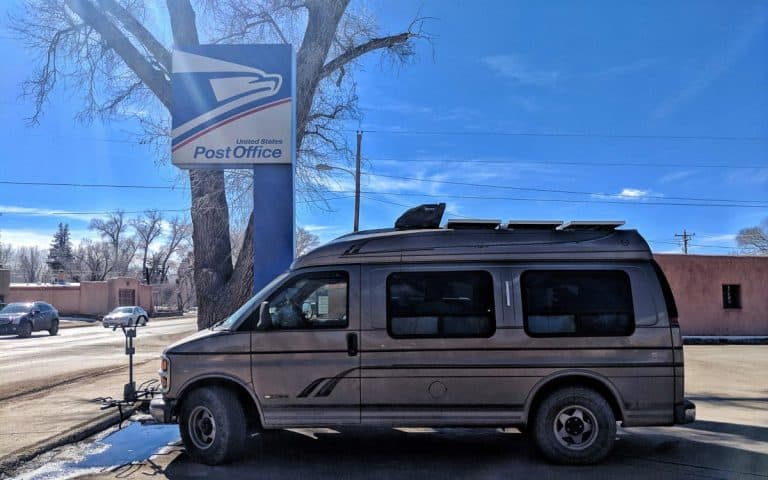
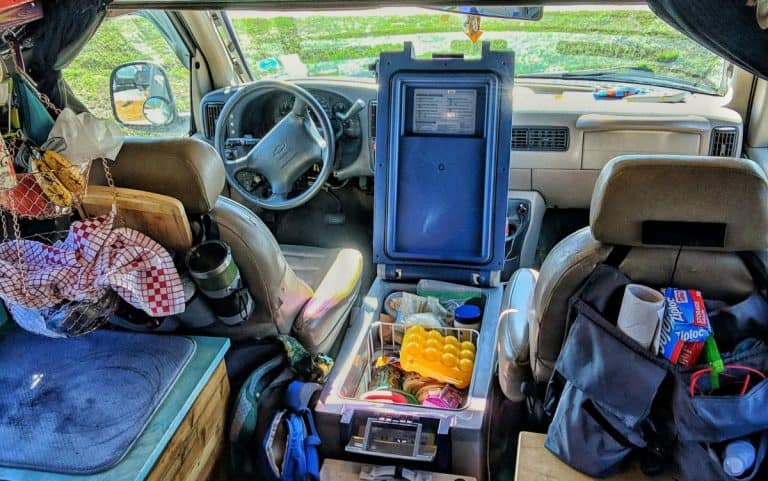
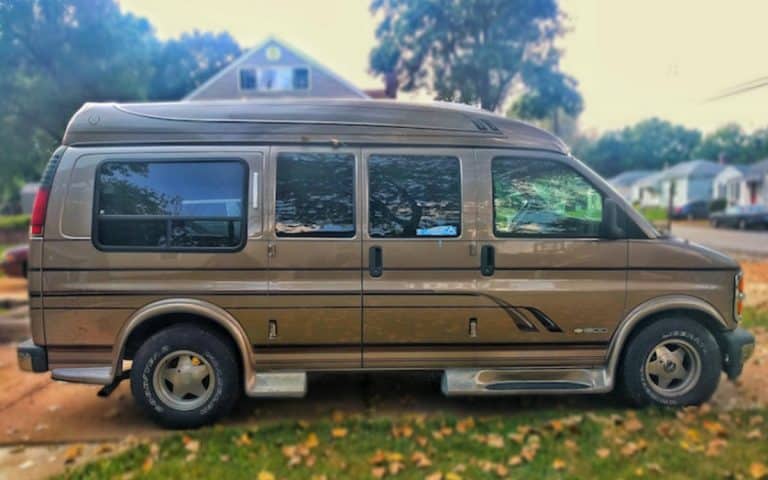
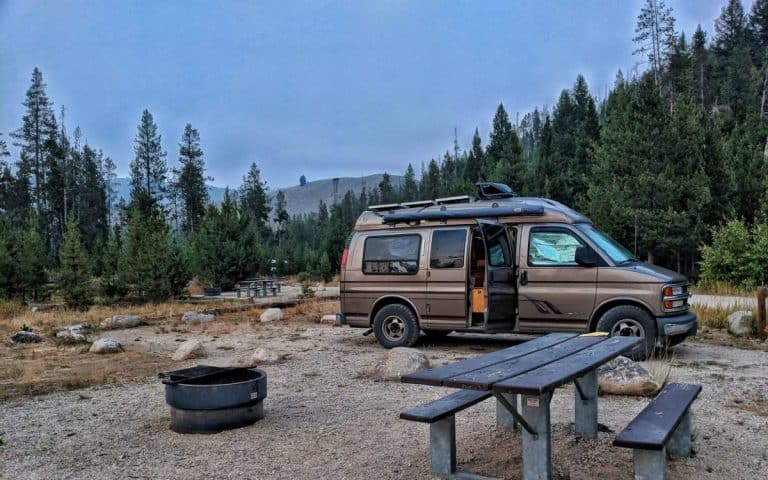
Thanks for being so honest! I have definitely felt the same “Where am I gonna sleep” anxiety living in my car as well
This is one of the best articles I have read about Vanlife. Go you from being so honest !! Sending good vibes your way from down under. Peace.
I traveled in my car and slept in it for summer. I always parked in a hospital parking lot. People come and go in hospital parking lots all day and night. We never had a problem at all, even when we had a cat that slept on the hood all night, on a leash. It was an old car, big and roomy, but no air and we kept the windows open all night. Hospital parking lots, try it.
Hi Carrie, thanks so much for the tip!